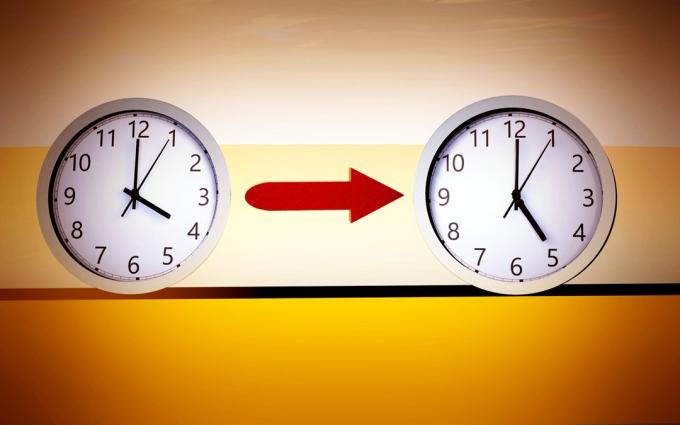Daylight saving time is the practice of advance the clocks during a period of the year in order to make better use of natural light and save on electricity consumption.
Due to the Earth's positioning in relation to the sun, during the summer the days are longer. This difference in day length is more significant in locations close to the Tropics of Capricorn and Cancer.
Regions close to the equator, on the other hand, show little variation in day and night duration. For this reason, the North and Northeast regions of Brazil do not usually adopt daylight saving time.
Currently, several countries around the world adopt daylight saving time as a way to save energy, but the idea of getting clocks ahead is from the 18th century.
In 1784, the american Benjamin Franklin suggested such a change so that the sunlight would be better used. At that time, there was still no electricity.
Summer time in Brazil
In Brazil, daylight saving time was adopted for the first time in 1931 and 1932, through Decree Law 20,466, signed by the then President Getúlio Vargas.
In the midst of a global economic crisis, the measure aimed to generate energy savings. At that time, the entire national territory adhered to daylight saving time, which lasted 5 months.
Daylight saving time was implemented until the year 1967, but without date and duration standards. From 1967 to 1984 there was no change in time, it was only in 1985 that the measure was adopted again.
In 2008, through the Decree 6558, President Luiz Inácio Lula da Silva instituted daylight saving time as follows:
- Start: zero time of the 3rd Sunday in October (as of 2018, the start has changed to the 1st Sunday in November).
- End: zero hour on the 3rd Sunday in February (if this Sunday coincided with Carnival Sunday, daylight saving time would end on the following Sunday).
Summer Time Suspension in 2019
In 2019, the president Jair Bolsonaro suspended daylight saving time, which would start on November 3rd.
This was a recommendation from the Ministry of Mines and Energy, which stated that due to changes in the habits of Brazilians and the configuration of the electricity sector system, daylight saving time no longer produces savings significant.
Brazilian states that adopted daylight saving time
Between 1985 and 2018, daylight saving time was adopted without interruption, in all states in the South, Southeast and Midwest.
The states that used to adopt daylight saving time, therefore, are: Rio Grande do Sul, Santa Catarina, Paraná, São Paulo, Rio de Janeiro, Espírito Santo, Minas Gerais, Goiás, Mato Grosso, Mato Grosso do Sul and Distrito Federal.

How does daylight saving time work?
When daylight saving time starts, the clocks must be advance in 1 hour. At the end of the period, the clocks must also be set back by one hour.
 At the start of daylight saving time, clocks are set forward by 1 hour.
At the start of daylight saving time, clocks are set forward by 1 hour.
The purpose of daylight saving time is save energy, especially between 6pm and 9pm. This time interval is called rush hour and represents the moment of the day with the population's greatest demand for electricity.
This is because it is at this time that people come home, take a shower and turn on other electronic devices such as television.
Thus, considering the prolonged sunshine in this season, by moving the clock forward by one hour, people can enjoy natural light for longer and reduce energy consumption.
Countries that adopt daylight saving time
Daylight saving time, known as daylight savings in English, it is used in several countries around the world, including:
- European Union countries;
- U.S;
- Canada;
- Mexico;
- Russia;
- Cuba;
- Australia;
- New Zealand;
- Chile.
See also the meanings of Tropics of Cancer and Capricorn.
